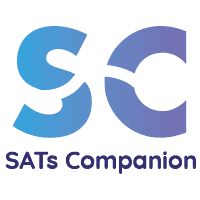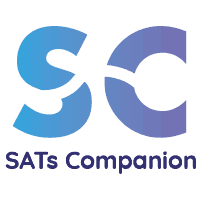International Women’s Day is an excellent opportunity to educate your pupils about influential women from the past and present. In keeping with this year’s theme, Break the Bias, enjoy our quick-read post you can share with your class.
1. Amelia Earhart- The first woman to fly solo over the Atlantic
A significant pioneer in aviation, Amelia Earhart became the first woman to complete a transatlantic flight solo across the Atlantic in 1932. It may not sound like much today, but this was a significant achievement at the time. Flying was still relatively new, and Amelia faced difficult flying conditions. She became famous for her achievement and completed several more solo flights and set several women’s speed and flying records. Sadly, her career was cut short during her attempt to be the first woman to fly completely around the world. Amelia and her navigator disappeared in 1937 over the Pacific Ocean, with little trace of them or the plane found. Today, Amelia Earhart is a significant figure in the history of aviation.
2. Malala Yousafzai- The youngest recipient of a Nobel Peace
From the young of 11, Malala has continuously fought for girls’ access to education. Growing up in Pakistan, Malala began blogging anonymously for the BBC about her life as a schoolgirl impacted by the Taliban, who were banning girls from school. Her blog posts drew attention, and she became more involved in activism with international charities. In 2012, Malala survived being shot by a member of the Taliban on her bus ride to school. Her bravery and story became world-famous, and she became a dedicated activist for girls’ right to access education. She won the Nobel Peace Prize in 2014 becoming one of the youngest recipients. Today, Malala is a dedicated education & human rights activist who has endured to be a role model for young girls around the world.
3. Helen Sharman- The first British astronaut
In May 1991, Helen Sharman was set into space on a Soyuz spacecraft on an eight-day expedition. Originally trained as a chemist, Helen was selected out of 13,000 applicants after responding to a radio advertisement to be the first British space explorer. At the time Great Britain did not have a spaceflight programme, so Helen’s eighteen months of training were funded by the Soviet Union. Whilst in space, she conducted medical & agricultural tests and even spoke to school children on the radio.
4. Ada Lovelace- The earliest computer programmer
From a young age, Ada showed significant talent. She became a mathematics prodigy at seventeen, being taught by some of the finest educators at the time. Around this time, Ada became friends and a mentee of Charles Babbage, who helped her begin her studies of advanced mathematics at the University of London. Throughout her life, Ada was fascinated by many scientific concepts. Between 1842-1843, Ada provided notes on Charles’s ‘The Analytical Engine, one of the earliest computing models. Her notes, three times as long as his original paper, are today considered to be one of the first computer programs. Over a century later, her notes were republished in the 1950s, reviving her work for a new generation.
4. Junko Tabei-The first woman to reach Mount Everest’s summit
Born in 1939, Junko fell in love with climbing from a young age, after attending a class strip to Mount Nasu. Her passion grew after university, often being the only woman on climbing trips & club meetings. Many men refused to climb with her thinking she was too frail. Nonetheless, she continued and founded her own climbing club for women in 1969. A few years later after a successful expedition, Junko and her climbing club set their sights on Everest. They were working women and mothers, who were repeatedly told they should be raising children instead. Nevertheless, they persisted by handmaking equipment and raising their own funds, making it to Everest in 1975. The climb was dangerous, with Junko even being injured by an avalanche. But, twelve days later she made it to the top, becoming the only woman in her group to do so. Junko also became the first woman to complete all Seven Summits by 1992.
We hope SATs Companion helps strengthen your class’s progress through all stages of KS2.
Want to find out more about how SATs Companion can help improve pupils’ learning? Click on the blue icon to contact our team with any questions or try here to book your free in-depth demo.




Leave A Comment
You must be logged in to post a comment.